The impact of severe weather events on communities around the world is immeasurable, both in terms of human suffering and economic losses. From devastating earthquakes to powerful hurricanes and catastrophic floods, the world has witnessed numerous disasters that have left indelible marks on the affected regions. We’ve already discussed the deadliest weather disasters, but in this article, we’ll focus on financial damage by exploring the top 10 billion-dollar weather and climate disasters:
- Earthquakes: Tohoku, Great Hanshin, Sichuan, Turkey-Syria
- Hurricanes: Katrina, Harvey, Ian, Maria
- 1988–1990 North American Drought
- 2020 South Asian floods
2011 Tohoku Earthquake and Tsunami
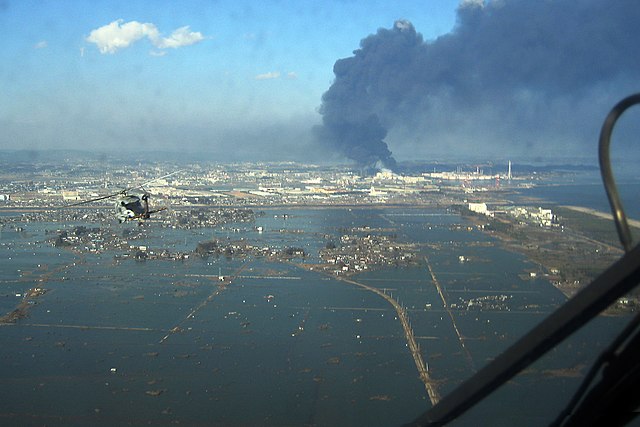 Source: Wikipedia
Source: Wikipedia
The Tohoku earthquake and tsunami that struck Japan on March 11, 2011, remains one of the most catastrophic natural disasters over the last decades. The quake triggered a massive tsunami, causing widespread destruction and leading to the Fukushima Daiichi nuclear disaster. The estimated cost of this severe weather event reached a staggering $468 billion, making it the world’s costliest seismic event.
Great Hanshin Earthquake
The Great Hanshin earthquake struck Japan on January 17, 1995. With a magnitude of 7.0, it devastated the city of Kobe and surrounding areas. The economic losses amounted to approximately $378 billion, highlighting the extensive damage caused by the seismic event.
2008 Sichuan Earthquake
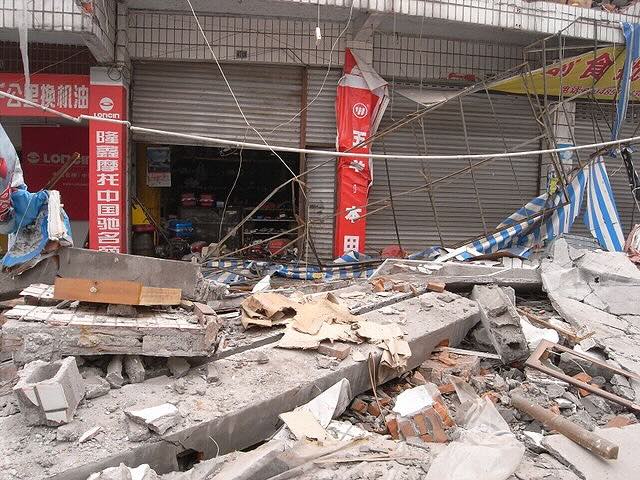 Source: Miniwiki, CC BY-SA 3.0, via Wikimedia Commons
Source: Miniwiki, CC BY-SA 3.0, via Wikimedia Commons
China experienced a devastating quake on May 12, 2008, with a magnitude of 8.0, striking the Sichuan province. The disaster claimed thousands of lives and caused economic losses amounting to around $201 billion. The Sichuan earthquake aftermath made it one of the most expensive natural disasters in Chinese history and seismic events history.
Hurricane Katrina
Katrina, which struck the Gulf Coast of the United States in 2005, was one of the most destructive hurricanes in US history. As Katrina came ashore in southeast Louisiana as a Category 3 hurricane, the storm surge breached levees in New Orleans, leading to catastrophic flooding across the city. The total cost of the weather event reached an estimated $187 billion, highlighting the hurricane’s long-term impact on the region.
2023 Turkey-Syria Earthquake
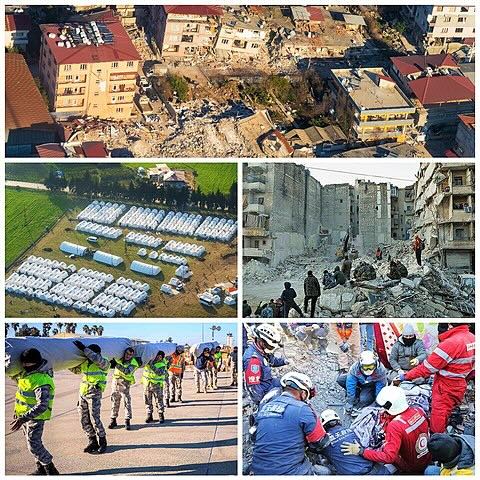 Source: Adem, CC BY-SA 4.0, via Wikimedia Commons
Source: Adem, CC BY-SA 4.0, via Wikimedia Commons
The 2023 seismic events in Turkey and Syria shook the region, causing widespread destruction. It was a double earthquake; the first one, with a magnitude of 7.8, hit southern and central Turkey as well as northern and western Syria. About 12 hours later, another quake with a magnitude of 7.7 followed. It was centered 95 km (59 mi) north-northeast from the first one. The economic cost of rebuilding and weather catastrophe recovery soared to an estimated $163 billion.
Hurricane Harvey
In 2017, Category 4 Hurricane Harvey unleashed unprecedented rainfall over Texas, causing severe flooding in Houston and other areas. Economic losses from this tropical cyclone surpassed $140 billion, making it the most expensive hurricane in the history of the United States. Recovery efforts included rebuilding infrastructure and assisting displaced residents.
1988–1990 North American Drought
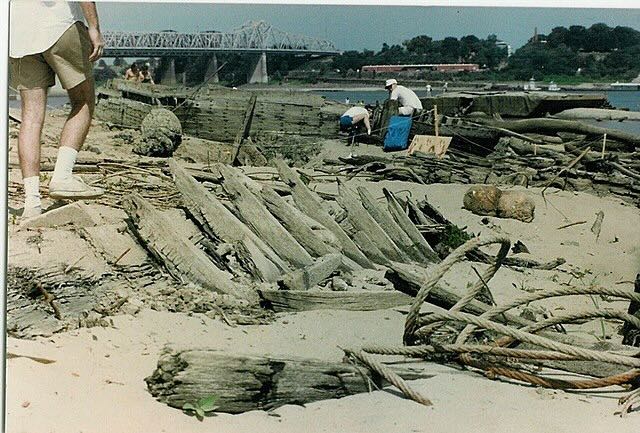 Source: Gary Bridgman, CC BY 2.0, via Wikimedia Commons
Source: Gary Bridgman, CC BY 2.0, via Wikimedia Commons
Gripping large parts of the United States and Canada, this climatic event had devastating effects on agriculture, water resources, and ecosystems. The drought caused a lot of dust to blow in the Midwest, like it did in the 1930s or 1977. A long dust storm shut down schools in South Dakota in late February 1988.
In the spring, some weather stations broke records for the driest month and the most days without rain. For example, Milwaukee had no rain for 55 days straight. In the summer of 1988, the drought triggered many wildfires in western North America, including the fires in Yellowstone. The economic losses associated with the drought reached an estimated $126 billion in damage.
Hurricane Ian
The 2021 Atlantic hurricane season saw Hurricane Ian wreak havoc as it made landfall in the Southeastern United States. The tropical cyclone caused widespread destruction and economic losses, with an estimated cost of $122 billion. This made it one of the top costly hurricanes in United States history.
2020 South Asian Floods
The monsoon season of 2020 brought catastrophic flooding to South Asia, affecting countries such as India, Bangladesh, and Nepal. The extensive damage to infrastructure, agriculture, and communities resulted in economic losses of around $119 billion, highlighting the vulnerability of the region to annual monsoon-related disasters.
Hurricane Maria
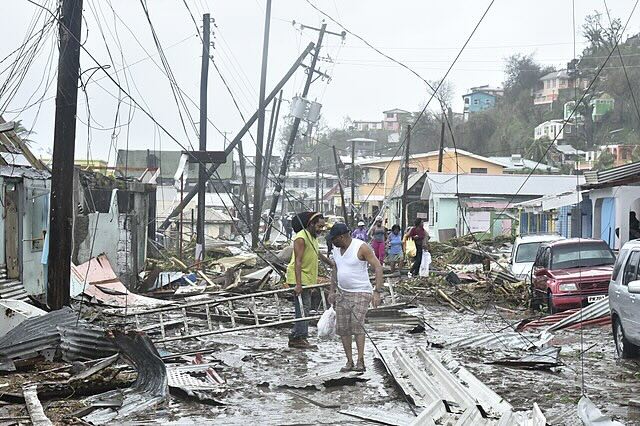 Source: Wikipedia
Source: Wikipedia
Hurricane Maria hit Puerto Rico in 2017, leaving the island without power and causing extensive damage to infrastructure. The economic cost of the tropical storm exceeded $ 100 billion, with prolonged recovery efforts and debates over the effectiveness of relief efforts. The severe weather event underscored the vulnerability of island nations to powerful hurricanes.
Most Expensive Weather Disasters: Summary
We’ve summarized all listed weather catastrophes in a table:
| Weather Disaster | Year | Est. Cost ($Billion) |
|---|---|---|
| Tōhoku Earthquake | 2011 | $468 |
| Great Hanshin Earthquake | 1995 | $378.3 |
| Sichuan Earthquake | 2023 | $201 |
| Hurricane Katrina | 2005 | $187 |
| Turkey–Syria Earthquake | 2008 | $163.6 |
| Hurricane Harvey | 2017 | $149 |
| North American Drought | 1988-1990 | $126 |
| Hurricane Ian | 2021 | $122 |
| South Asian Floods | 2020 | $119 |
| Hurricane Maria | 2017 | $109 |
Conclusion
The most expensive weather disasters in world history remind us of the urgent need for preparedness, resilience, and global cooperation in the face of climate change. Facing rising threats from extreme weather, tackling their root causes, and minimizing damage remain crucial for our planet.






